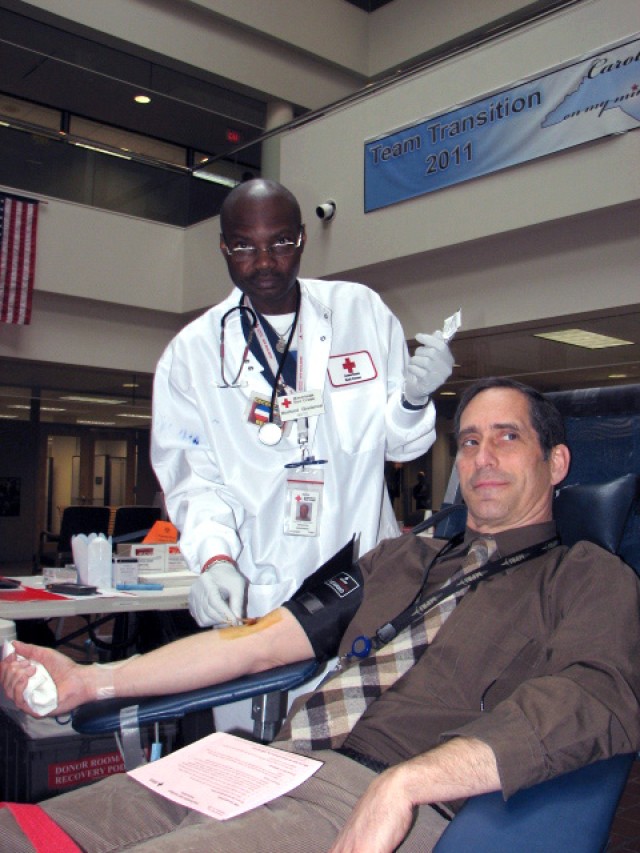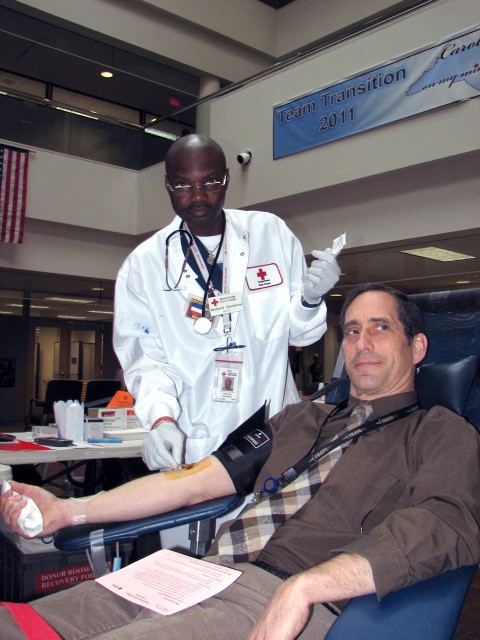
Unlike blood spilled in battle, the blood collected by the Red Cross Monday on Fort McPherson at the U.S. Army Forces Command flag atrium was given willingly by Soldiers and Civilian employees.
William Harrison, a civilian contractor with the FORSCOM G-3 Strategic Initiative Division enterprise process improvement team, said he chose to give blood because he once received blood.
"It's important to help the blood supply," he said, adding his next big project is convincing his son, Jack, 16, to begin donating when eligible. "To help someone else is a privilege."
The chance to help those in need is a driving force behind the events, which are coordinated through the Red Cross and Gerald Henderson, the building manager for FORSCOM headquarters.
"We try to do them quarterly," he said, adding the next donation drive will occur sometime in the summer.
The goal of each drive is to get at least 25 pints, he added.
The demand for blood is always high, said Tonette Holt, a blood collection technician with the Red Cross.
"We need all types right now, especially O negative," she said.
Blood type O is known as the universal donor, as all blood types can receive it, she said. Donors are encouraged to donate whenever possible, she said, which is roughly every two months.
Standard donors can donate every 56 days, while those who donate using a centrifuge machine can do so every 112 days, she added.
The centrifuge machine takes a double donation of red blood cells and restores plasma back to the donor along with 500 milligrams of saline to make up for the additional extraction.
The advantage of red blood cells collected this way is they require less testing after collection, thus allowing it to be distributed quickly to those in need, Holt said.
Currently, O and B blood types can donate on the centrifuge machine, Holt said.
Although the blood loss won't lead to a Purple Heart for Soldiers who donated, it can lead to a sense of satisfaction in knowing they've helped people in need.
"I felt if I had the chance to that, I should do it," said Sgt. 1st Class James Strozier, FORSCOM G-1 NCOIC and one of 17 donors.
"It's the right thing to do." The cookies and juice didn't hurt either, he said. More than anything, Henderson said people should donate because their donation helps out everyone in the community.
"There's great satisfaction in giving to someone in need," he said. "It makes you feel good inside."

Social Sharing